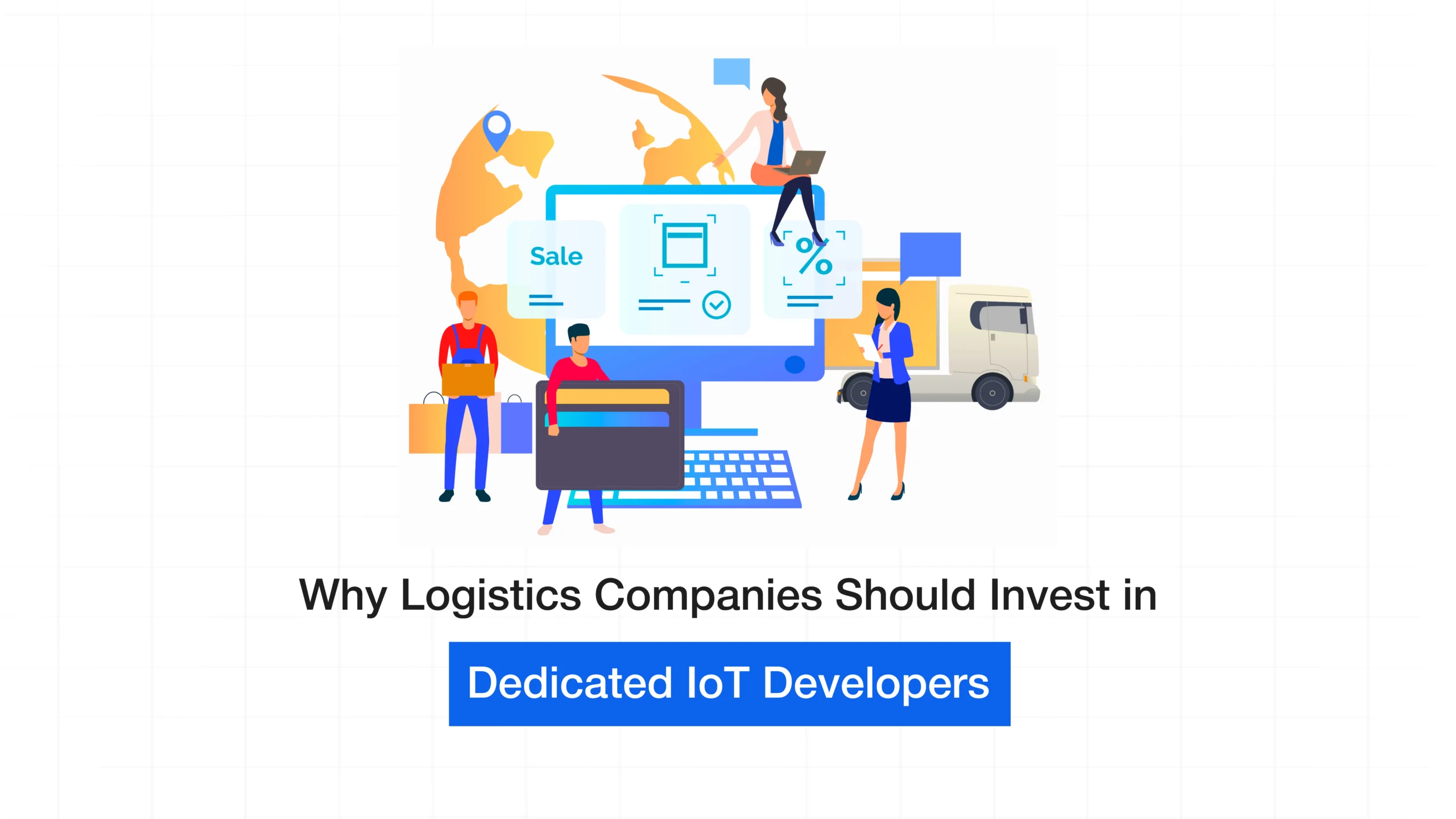
Why Logistics Companies Should Invest in Dedicated IoT Developers in 2025
- September 19, 2025
- Ayesha J
- 10:00 am
Global trade has always relied heavily on the logistics sector, but in 2025, the rate of change is accelerating. Logistics firms can no longer depend on antiquated systems due to the increasing demands for real-time tracking, predictive maintenance, and data-driven decision-making. Hiring dedicated IoT developers is increasingly becoming a strategic necessity rather than a luxury as the Internet of Things (IoT) has changed the game.
1. Real-Time Visibility Across the Supply Chain
Businesses and consumers alike demand complete transparency. Solutions that facilitate fleet monitoring, sensor-based inventory updates, and real-time GPS tracking can be created by dedicated IoT developers. This enables logistics firms to provide clients with precise delivery ETAs, minimise delays, and remove blind spots.
2. Optimizing Fleet Performance with Predictive Maintenance
3. Enhancing Warehouse Efficiency
The logistics industry’s future lies in smart warehouses. Inventory management can be streamlined by dedicated IoT developers integrating RFID tags, IoT sensors, and automated storage systems. This guarantees quicker order fulfilment, minimises human error, and avoids overstocking.
4. Strengthening Cold Chain Monitoring
5. Boosting Sustainability Efforts
6. Data-Driven Decision Making
IoT devices produce enormous amounts of data. Through advanced analytics, AI integration, and customised dashboards, dedicated IoT developers assist logistics companies in utilising this data. As a result, better choices are made regarding risk management, customer experience, and resource allocation.
7. Competitive Advantage in a Tech-First Market
Final Thoughts
By 2025, logistics firms will be transporting information, efficiency, and trust in addition to goods. Investing in dedicated IoT developers guarantees the capacity to meet growing customer expectations, deliver with accuracy, and innovate continuously. Logistics executives have a clear choice: the future of global supply chains will be shaped by those who adopt IoT first.
If you’re ready to transform your logistics operations in 2025, get in touch with us today — we’d love to help you take the next step.
Latest Blogs
Why Businesses That Invest in the Right Technology Grow Faster
How Smart Businesses Turn Digital Chaos into Scalable Growth
Why the Best Digital Solutions Begin With Better Questions
Schedule your free consultation and get expert guidance
FAQ
They provide prompt discounts, personalized help, instantaneous query resolution, product recommendations, and more—all of which increase the chatbot conversion rate.
Reduced expenses, round-the-clock AI customer service, quicker checkout times, and increased customer happiness are some advantages of e-commerce chatbots.
Not entirely. While AI in online stores automates routine tasks, live agents are still essential for complex issues. Together, they create a hybrid model that boosts conversions.